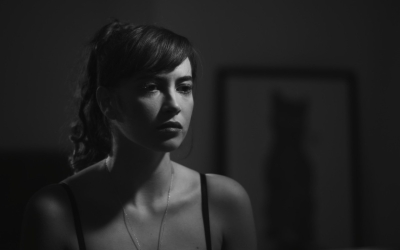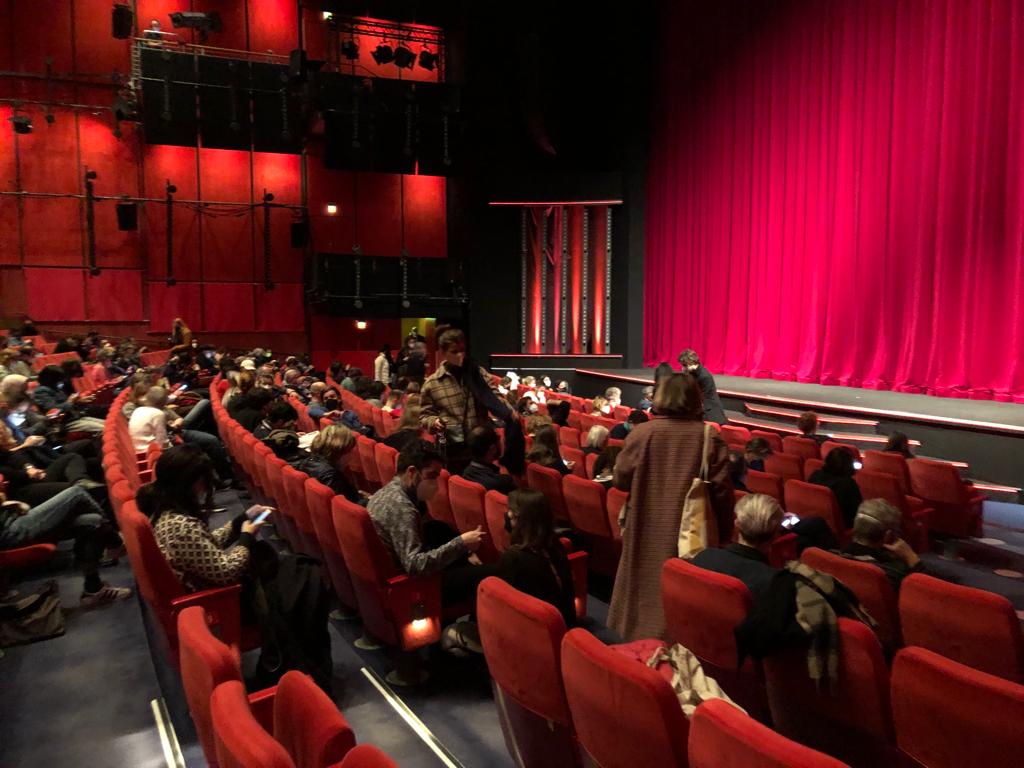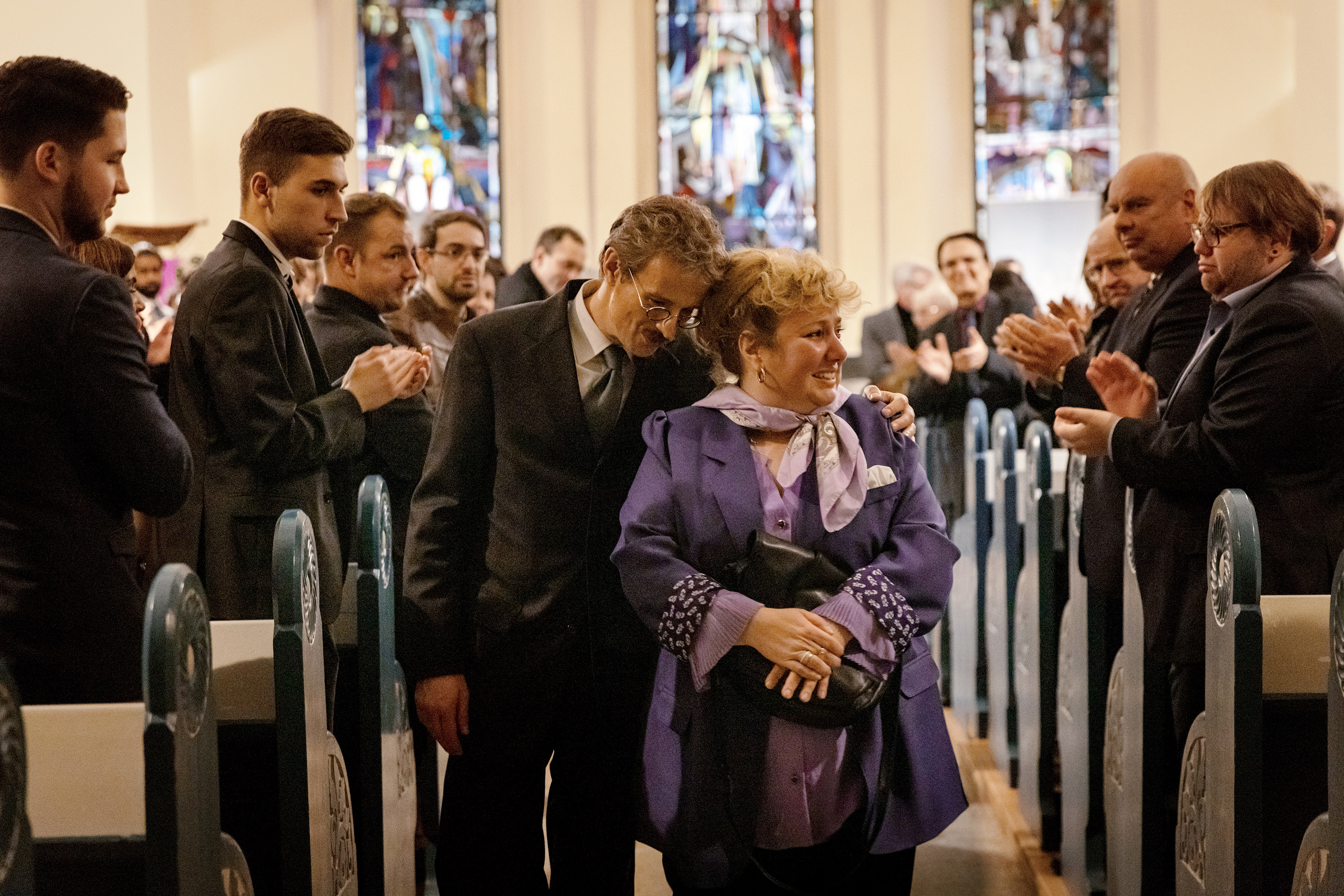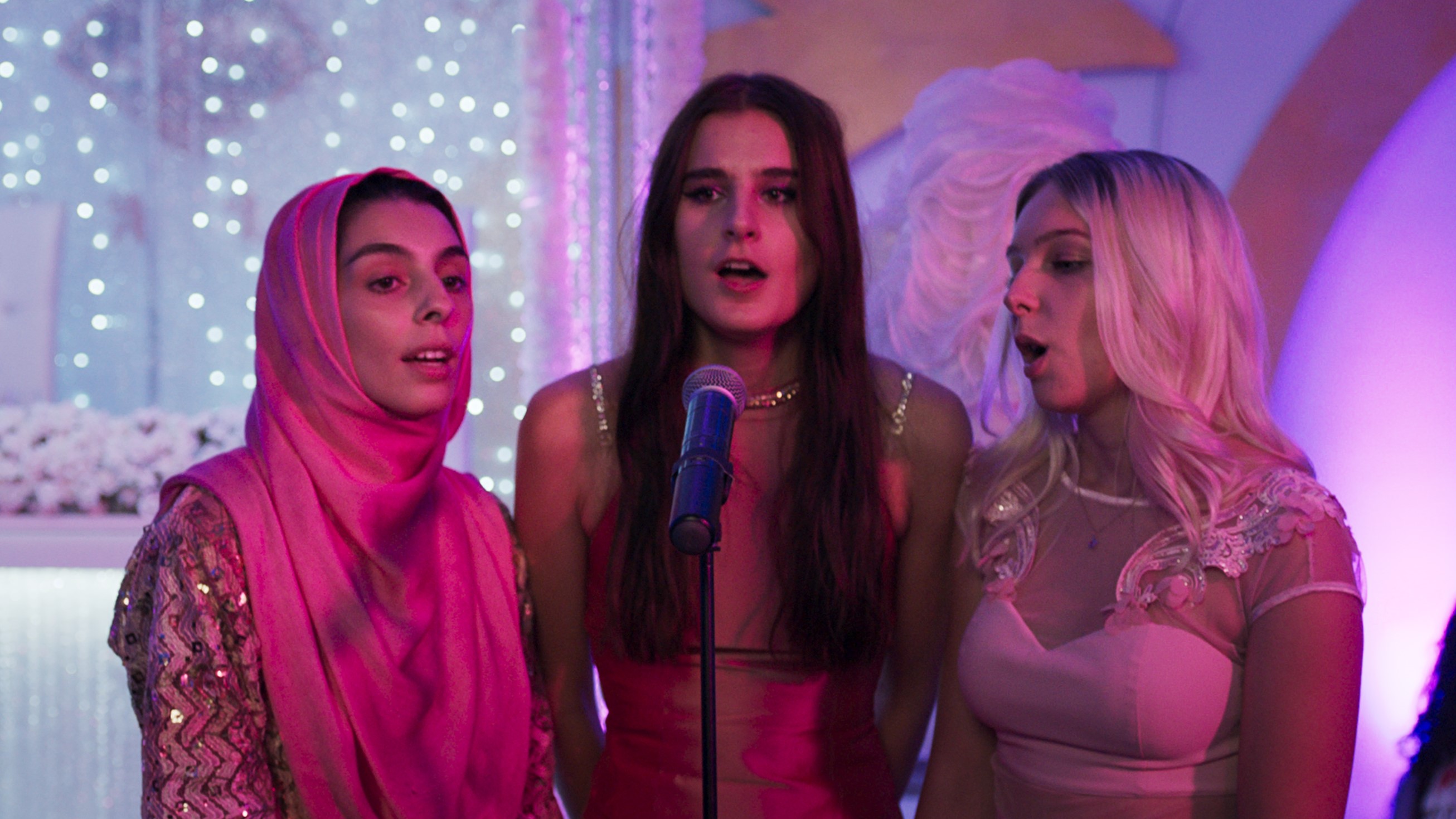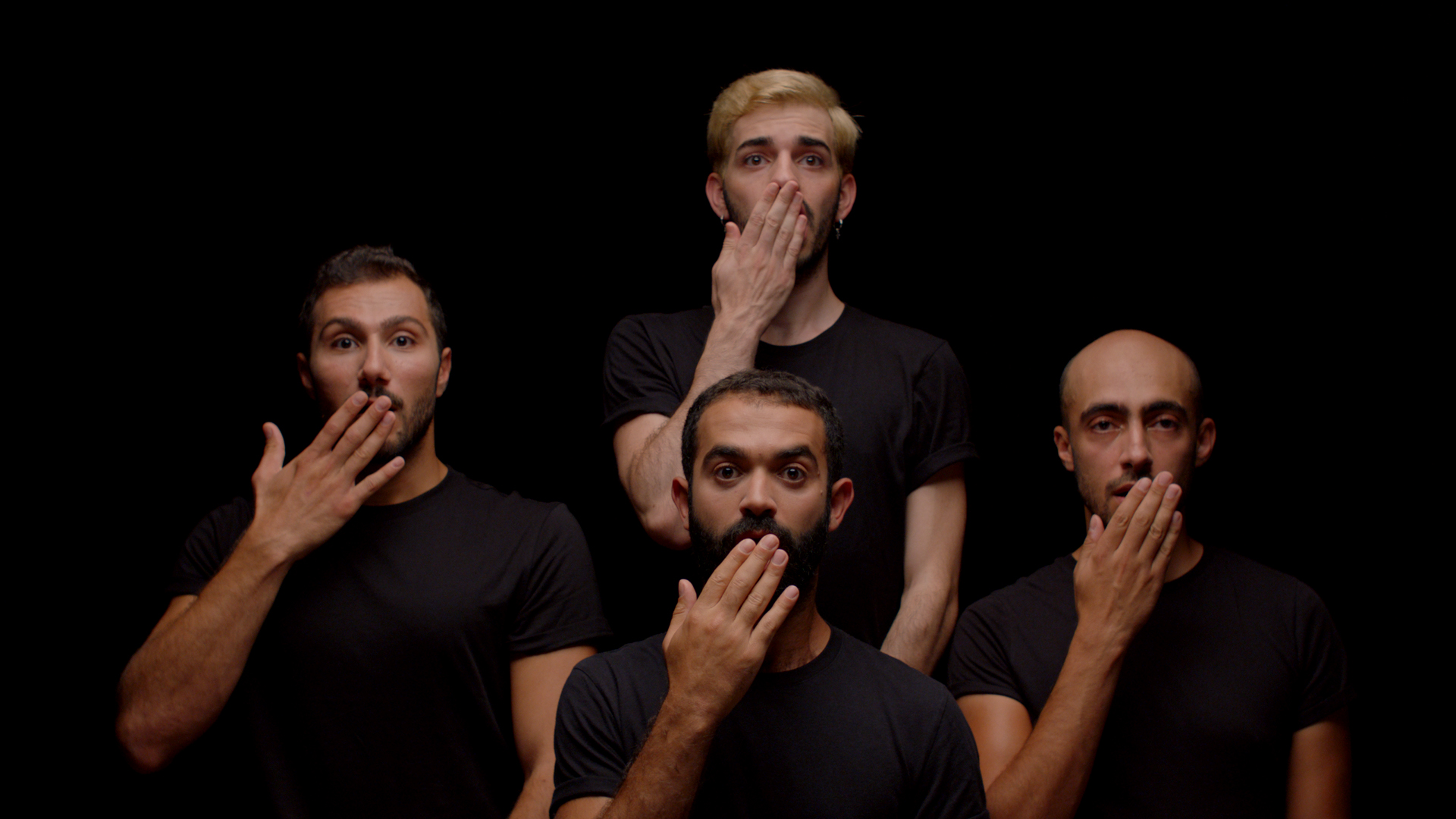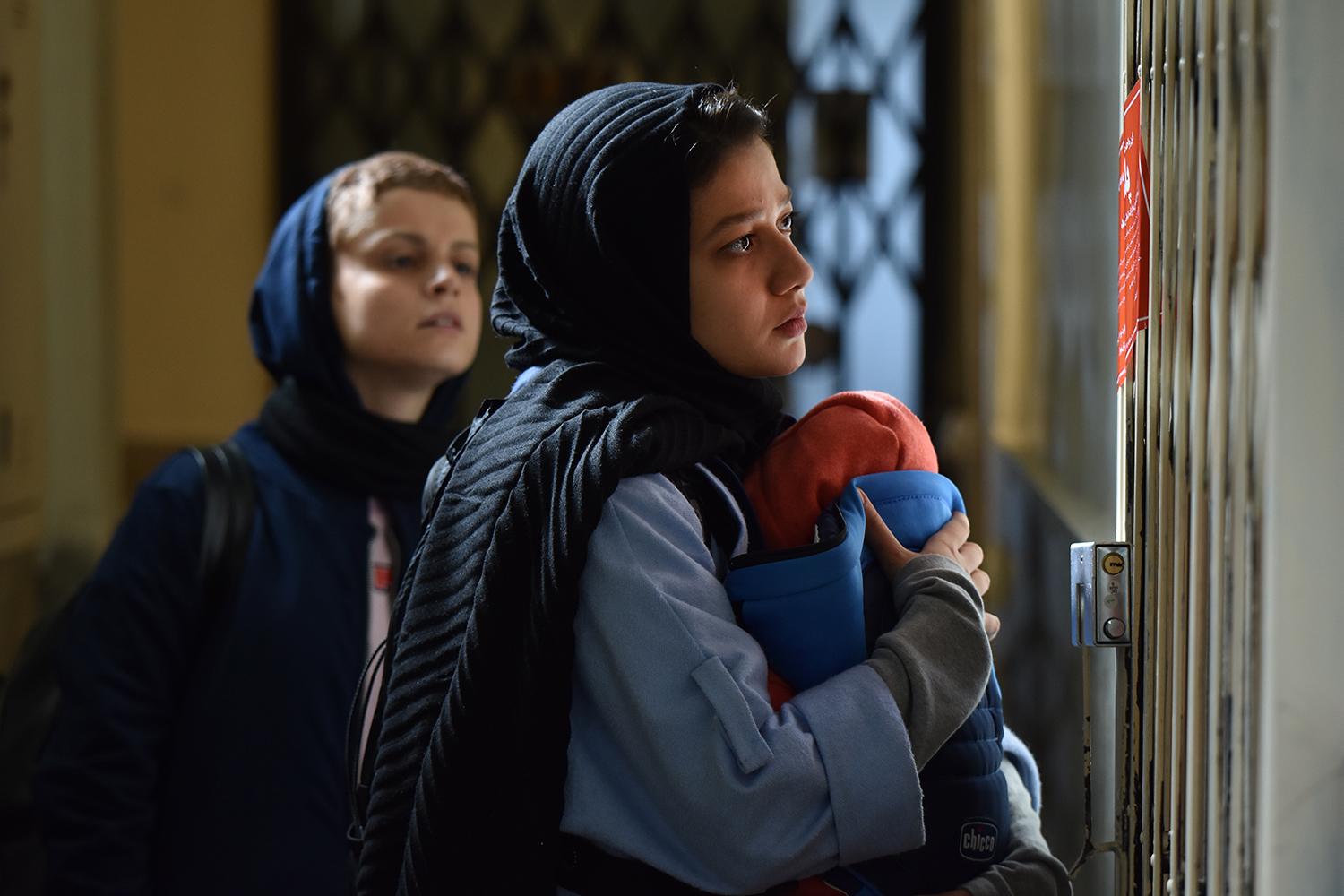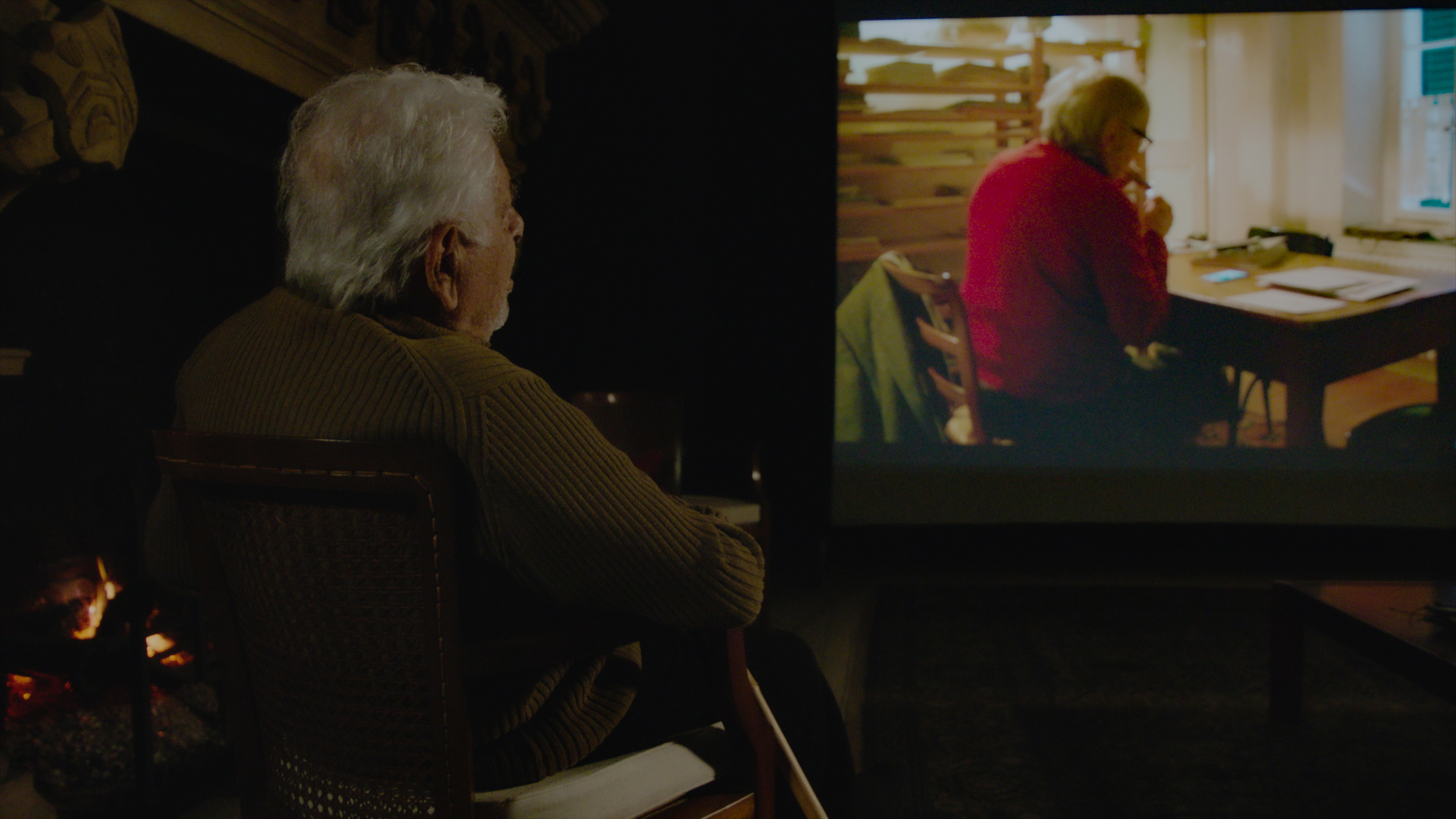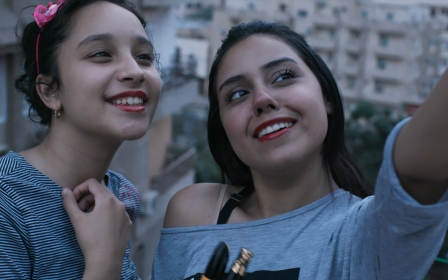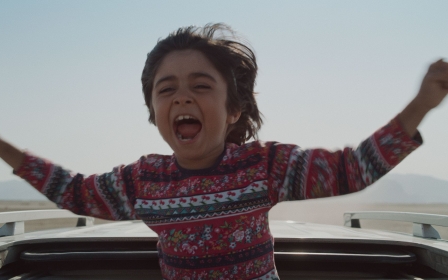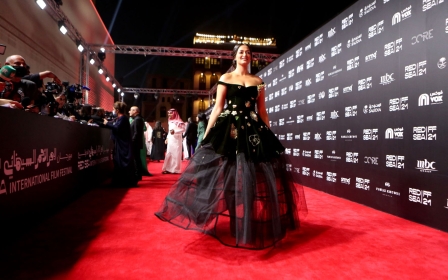Berlinale 2022: Films on Europe's Arabs and Muslims take centre stage
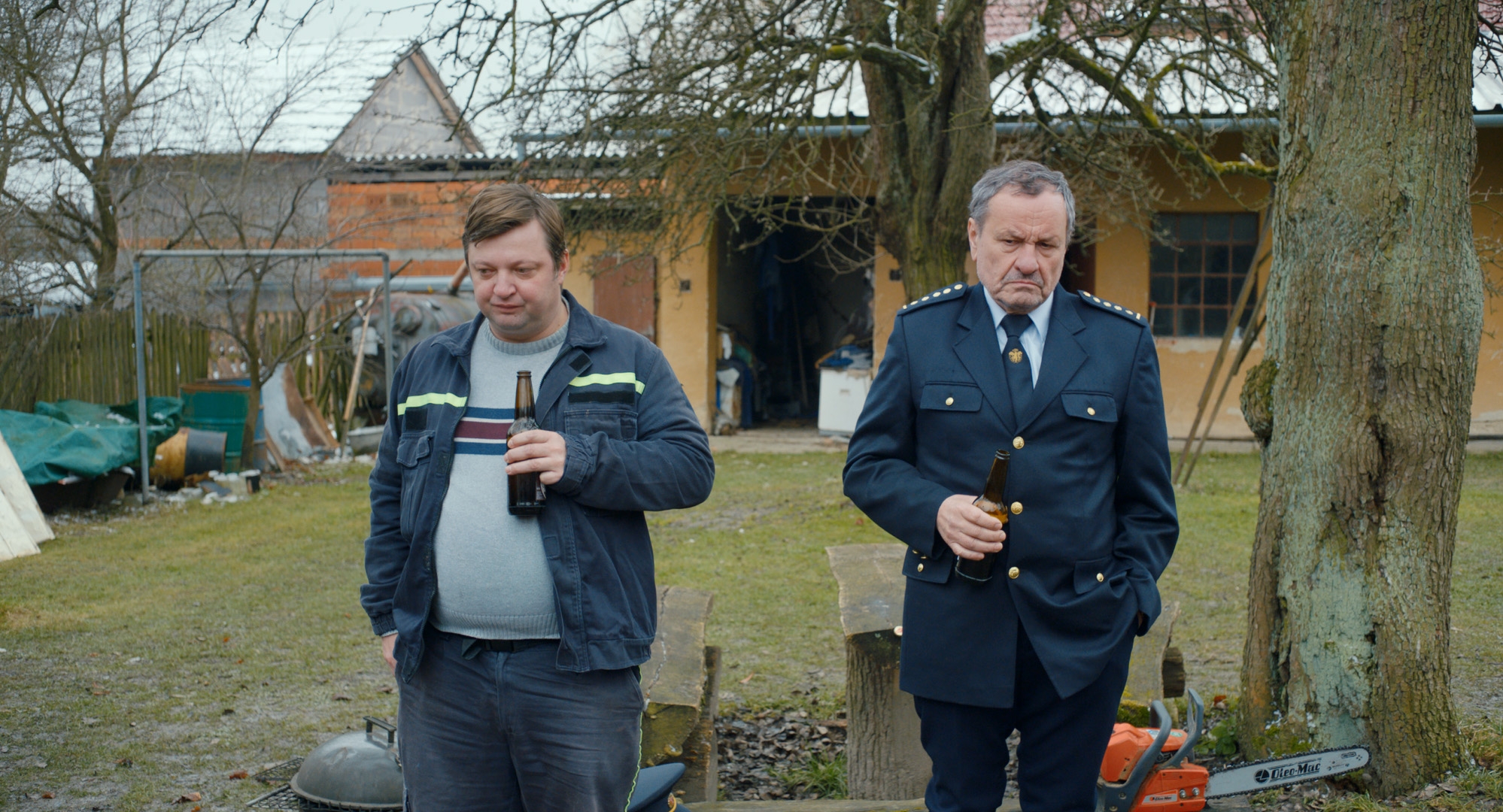
Every winter for the past 22 years, the ultra-touristy, but normally calm, Berlin district of Potsdamer Platz is transformed into the busiest locality in the city.
Flooded with film industry pros and moviegoers from across the globe, the few unappealing food options are crammed with attendees looking to grab a bite between screenings and meetings.
With the pandemic still weighing heavy, this year's Berlin International Film Festival (Berlinale) still lacked the crowds previous editions had drawn but was a step up from the previous year's virtual one.
Held between 10 and 20 February, organisers were keen to pull off an in-person festival following successes doing so at Cannes and Venice last summer.
The timing could not have been more inopportune, operating during the Omicron surge in Germany, the festival was forced by the government to take lengthy and strict cautionary measures.
For the second year, its market had to go entirely online - a major blow to global independent producers and sellers fed up with the zoom conference rooms.
The festival was held at half capacity, with strict mask rules and social distancing. All festival-goers had to be either boosted or carry a negative Covid test no older than 24 hours - as for the press, inexplicably, we were obliged to have both.
International critics and journalists therefore faced the taxing risk of testing positive during the festival and sacrificing a costly trip for nothing; with 128 guests testing positive in the first seven days of the festival, that risk was certainly tangible and real.
No wonder then that less than half the number of accredited press and industry members registered in the 2019 edition turned up this year.
Like Venice and Cannes before it, smaller films struggled to gain attention as critics, once again, directed their focus towards auteur-driven competition films and politically hot-buttoned pictures.
With restrictions across Europe being dropped in a mark that could signal the end of the pandemic, the independent film market remains nonetheless in flux, with producers, distributors and exhibitionists alike remaining ambiguous about the future of cinemas and the evolving streaming landscape.
Middle Eastern offerings
For critics and the handful of programmers and industrials who made it to the fest, the 72nd Berlinale was a low-key and laidback experience. Unlike the disaster that was Venice 2021, the ticketing system was a breeze and the reduced attendance made it a more intimate affair than usual.
Compared to the virtual 2021 edition, arguably one of the best in 12 years, this year's Berlinale did not live up to expectations.
With distributors and producers reluctant to commit their top titles to an event shrouded by insecurity, the need for having “red carpet” titles for the competition, and the fact that many of the established auteurs simply did not deliver, the festival was bound to suffer from a critical backlash this year.
Now in his third year as an artistic director, the Berlinale of Italian programmer Carlo Chatrian and his team remains an adventurous, unpredictable affair. The competition aside, the selection teemed with remarkable discoveries from disparate parts of the globe, challenging in both form and politics.
Unlike 2021, which witnessed the largest selection of Middle Eastern films in the festival's recent history, Berlinale 72 was low on titles from the region, especially from the Arab world with only a sole new production selected for this year’s lineup; Shall I Compare You to a Summer's Day? - an experimental Egyptian feature.
Sketchy relations
Nevertheless, Europe’s sketchy relation to its Middle Eastern population emerged as a key theme at the festival.
In Alain Guiraudie’s Nobody's Hero, a terrorist attack that rocks the small French town of Clermont-Ferrand propels a lovelorn white middle-class man to suspect that the young homeless Arab man loitering in his neighbourhood could be a conspirator.
Similarly, in Adam Koloman Rybansky’s wry Czech comedy Somewhere Over the Chemtrails, the head of a fire brigade frames an unseen “dirty Arab terrorist” for injuring a villager in a car accident. Even after he finds out that the man who injured the villager is a drunken Czech neighbour, he refrains from divulging the truth as a means to keep the village denizens alert to the dangers of Arab migration.
In these films, Arabs are depicted as either the invisible enemy or the mute, unintelligible other
In Austrian master Ulrich Seidl’s Rimini, the estranged daughter of a has-been cabaret singer, has a silent Arab boyfriend who, along with his extended militant-looking clan, ends up invading the protagonist's house.
Even in the Francois Ozon’s misguidedly apolitical 1970s-set festival opener, Peter von Kant, the new flame of the eponymous German character happens to be a bisexual Arab (based on El Hedi ben Salem, the real-life Moroccan lover of late filmmaker Rainer Fassbinder and star of the classic 1974 classic melodrama, Ali: Fear Eats the Soul).
Each one of these films represents a part of a larger mosaic reflecting Europe’s thorny relationship to its Arab and Muslim immigrants. Nobody's Hero, Rimini, and Chemtrails zero in on provincial Europe's lingering fear towards a race and a culture that is yet to be comprehended or accepted.
In these films, Arabs are depicted as either the invisible enemy or the mute, unintelligible other. The Arab suspect of Nobody's Hero, meanwhile, is seen with heightened suspicion because he prays, although he’s later deemed benign when it is revealed that he is gay.
To European filmmakers, sexual identity plays an instrumental role in whether that mysterious Arab is seen as a threat or not. Like Nobody’s Hero, the Arabness of Peter von Kant’s lover ceases to be an issue, simply because he’s a bisexual hedonist.
Two competition films were more pronounced in tackling the theme. The first is Andreas Dresen’s Rabiye Kurnaz vs. George W. Bush, a comic drama centering on the lengthy real-life quest of an immigrant middle-class Turkish mother (best actor winner, Meltem Kaptan) to free her unjustly detained son in Guantanamo.
Played mostly to a tone-deaf comic effect, the most illuminating aspect of Dresen’s otherwise conventional Hollywood-ish drama lies in its final coda when it’s revealed that a number of German prosecutors attempted to block the young detainee from returning back to Germany, taking away his residency for political reasons driven by palpable racism. Their efforts would eventually be thwarted, but they were never prosecuted for their actions.
The second is Isaki Lacuesta’s French/Spanish production One Year, One Night about a European couple grappling with trauma after surviving the 2015 Bataclan theatre attack in Paris. Although earnest and at times poignant, the film is, nonetheless, highly problematic.
Although they live in a city with a significant Arab and North African population, the world the European couple inhabit is strictly white. They have no non-white friends and even though they’re both educated white-collar workers, they seem to be clueless and ignorant of everything Arab.
The pair spend time attempting to decode the roots of Arab terrorism, only to come up with naive theories. In one scene, one of the shell-shocked survivors says “I’m not a racist, but every time I see an Arab in the metro, I feel like p*****g my pants.”
Lacuesta’s intention of conveying the long-lasting trauma of his characters - which is predictably overdramatised and graceless - is carried out at a cost. In Lacuesta’s white-washed, awfully restricted world, the prospect of a character like Moroccan filmmaker Ismael El Iraki, a real-life Bataclan survivor who happens to be a middle-class and atheist Arab doesn’t seem to exist.
In his world, Arabs are depicted as the ghettoised, underprivileged others who should be sympathised with and not discriminated against, but positively feared.
Importance of indigenous voices
The reductive, one-dimensional treatment of Middle Easterners by European filmmakers was offset by a handful of remarkable films that, once again, demonstrated the importance of indigenous voices.
Chief among them is Sonne, a debut offering by Vienna-based Iraqi filmmaker, Kurdwin Ayub, which earned the Best First Feature award.
The coming of age story sees two Austrian teenagers and their veiled second-generation Iraqi friend Yesmin (Melina Benli) become viral sensations after recording a spoof rendition of REM's Losing My Religion.
Raised in a relaxed religious environment by empathetic parents who proudly wear the “good immigrants” tag on their sleeves, Yesmin is nonetheless torn between tradition and contemporary teen culture, in which over-sexualization is de rigueur.
Avoiding cliches surrounding Middle Eastern youth in Europe, Sonne is a rich, multilayered study of teens torn between a confusing reality and an ill-defined virtual existence. Yesmin doesn’t need to fit in because she’s already accepted and loved by her white friends.
There isn’t one instance when Yesmin is subjected to any blatant racism. Her veil, however, gradually becomes a handicap - a memorabilia from a younger, different past, which no longer fits her. There are unquestionably various pressures from her immediate environment, but her conflict is largely internal - an agonising search of identity.
Standout films
The most contentious title among the Middle Eastern selection was the aforementioned Shall I Compare You to a Summer's Day? by Berlin-based Egyptian filmmaker and video artist, Mohammed Shawky Hassan.
An experimental tapestry on the elusiveness of love and the loose boundaries of open relationships, Hassan weaves his themes into a queer One Thousand and One Nights-like fable with perpetual changes of perspective, imaginatively encompassed with Egyptian pop music from the 90s.
Hassan’s bold, brash film is oddly gentle and strangely romantic. By extracting pop songs from their heteronormative heritage and casting them in a new queer light, Hassan has pulled out an act of resistance - an act of self-actualisation at the front and centre of a culture that continues to punish homosexuality.
Taking a leaf out of various classic queer pictures - from Todd Haynes to Kenneth Anger - its visuals can be heavy-handed at times, augmented by the worn-out treatment of sex as a dangerous, exotic undertaking. Although playful for the most part, the experimental flourishes can feel forced on occasion, diluting the emotional charge of the film.
But overall, this is another notable entry into the expanding cannon of Arab queer cinema. With a number of MPs in Egypt calling for the revocation of Shawky’s Egyptian citizenship and officials censoring the film, Shawky and his cast’s exile could now be indefinite.
Iran also featured prominently in this year’s selection, with films that illustrated the new exciting directions budding filmmakers are taking.
Ali Asgari’s sophomore effort, Until Tomorrow (Ta Farda), is easily the most suspenseful in the festival. College student Fereshteh is forced to find a place to hide the baby she had out of wedlock when her parents, who reside in the countryside, pay her a surprise visit.
Thus begins a nightmarish odyssey played out over a single day that exposes class hierarchy, cannibalistic patriarchy, and institutional corruption.
The blueprint of Asgari’s latest bears considerable resemblance to his 2017 debut, Disappearance, also a thriller set over the course of one evening about a young couple seeking an urgent gynaecology surgery in Tehran, but that doesn’t detract from the power and edginess of the director’s superior second film.
Asgari's Tehran is a decadent metropolis where freedom can only be attained by class privilege. Fereshteh has money, but she does not have the connections or resources that will allow her to live the way she wishes.
Men may be apathetic predators, but women are not entirely blameless, coming off as marionettes whose stable existence is dependent on safeguarding their class status. Clear-eyed and audaciously pointed, Until Tomorrow does not break new grounds, yet it remains a truly accomplished picture by a highly skillful filmmaker.
Meditation on mortality
More aesthetically daring is A Vendredi, Robinson, a documentary feature by Paris-based Iranian sculptor and filmmaker, Mitra Farahani.
Having co-produced the last Jean-Luc Godard film, Farahani sets up a virtual correspondence between the legendary French filmmaker and Ebrahim Golestan, one of the icons of the 1960s Iranian "New Wave" who embarked on a literary career upon leaving for the UK in the late 1960s.
Over the course of 29 weeks, Godard and Golestan - two of the most influential cultural titans of the 20th century - who have never met, would exchange an email every Friday covering disparate subjects motored by Godard’s signature cryptic modus operandi.
Both now in their nineties, the correspondence of the pair starts off as chess game of sorts, with the emotionally reserved Godard responding to Golestan’s graciously open intellectual inquires with images of Matisse, an inverted page of James Joyce’s indecipherable Finnegan’s Wake, and phone-shot videos of his own shadow.
Initially deeming him “pretentious” but irrefutably a genius, Golestan gradually warms up to Godard as their interactions grow more pensive and warmer. What unfolds is deeply felt meditation on mortality, the unmapped links between western and eastern cultures, and the legacy of art in the 21st century.
Godard, who still considers himself a critic, sees criticism as an act of self-affirmation, of a defiant occupation against death, or “self-death” as he puts it. His final words on why he still believes in cinema are among the most poetic, most moving, most articulate tributes to an art form that has been commodified to death over the past 20 years.
There were a number of other Middle Eastern highlights in the selection, namely the wonderful new restoration of the 1981 Lebanese civil war-era classic Beirut, the Encounter, by the recently deceased Borhane Alaouie, which has lost none of its power and relevancy; and German/Turkish Cem Kaya's crowd-pleasing documentary, Love, Deutschmark and Death, about the unknown history of Turkish immigrant music in Germany.
The schism between how Middle Eastern filmmakers see themselves and how European directors see them has never been as conspicuous as in the films of the 2022 Berlinale.
The conjecture that Europe may finally be on the cusp of a post-race world has been proven by this year’s offerings to be nothing but wishful thinking. For all their pitfalls, the Middle Eastern-themed films of the Berlinale have shown that the discussion is far from over.
Middle East Eye delivers independent and unrivalled coverage and analysis of the Middle East, North Africa and beyond. To learn more about republishing this content and the associated fees, please fill out this form. More about MEE can be found here.


